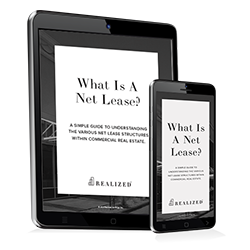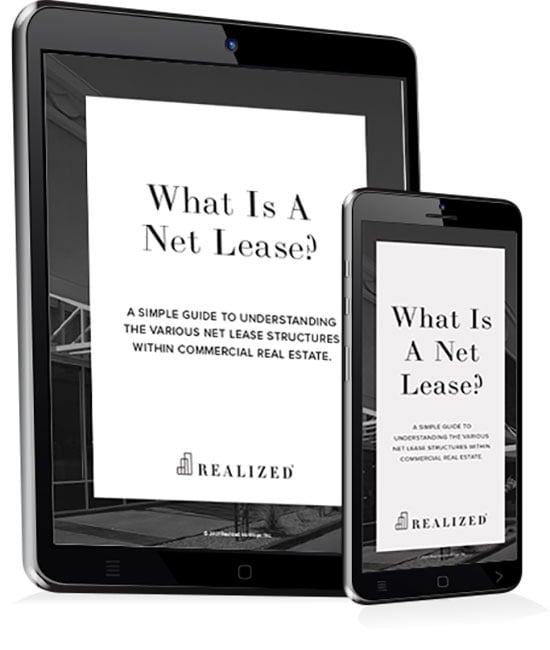
As you may already know, triple net (NNN) investments are promising real estate structures that offer stable income and hands-off involvement for investors. However, like any other investment instrument, NNN leases are not immune to certain economic conditions. For example, inflation can have an impact on triple net lease investments for better or worse.
How do inflationary environments affect these assets specifically? Below, Realized 1031 takes a closer look.
Effects on Purchasing Power
The most immediate effect of rising inflation rates is the reduction of purchasing power. Let’s say your lease agreement involves $100,000 annual rent. A few years ago, that $100,000 could have purchased goods or services equal to that amount. If inflation has risen by 5%, however, then your $100,000 rental income would only be able to buy $95,000 worth of goods.
When you’re locked in an NNN lease, the rental income remains the same regardless of inflation rates, meaning the real value of the investment also declines. Given this possibility, investors need to prepare before entering an NNN lease.
Rent Escalation
One effective strategy is to include rent escalation clauses in NNN lease agreements. This language provides landlords the right to increase rent thanks to factors like inflation. There are a few types of rent adjustments.
- Fixed Escalations: You increase rent by an agreed-upon rate on a regular basis, usually annually.
- CPI-based: You follow the consumer price index (CPI), so you can increase rent based directly on the cost of living. The higher the increase in CPI, the higher the rent increase.
- Step-up Leases: This clause allows you to periodically increase rent at pre-agreed milestones, offering incremental protection.
NNN Investments as a Hedge Against Inflation
Real estate, by nature, tends to be a great instrument to protect against high inflation. The rent escalation clause is one of the factors contributing to this advantage. However, the most prominent factor is the fact that property values can rise in inflationary environments. Materials and labor costs also go up during these periods, which means new constructions are more expensive. As a result, the value of existing real estate also increases. Land, being a finite source, also contributes to this appreciation.
What About the Tenant?
You should also take into account how inflation might affect the tenant, and by extension, lease stability. Since the occupant is handling all three net operating expenses, they are the most vulnerable to the effects of inflation. The worst-case scenario is them being unable to fund operations, which leads to tenant default.
Since leases span 10 to 25 years, choosing a strong tenant is often the ideal strategy to hedge against inflation and lower risk. Those who have major operations or have strong financials are often more resilient to inflation than smaller tenants. Some examples are established retail franchises (big box retail), healthcare companies, and telecommunication conglomerates.
Wrapping Up: Inflation and Triple Net Lease Investments
Inflation is a normal part of economic cycles, and NNN investments can benefit from it if the landlord or investor prepares ahead, such as by including rent escalations and choosing tenants with strong credit. Being proactive lets you position yourself to weather inflationary pressures and continue enjoying the long-term benefits of your NNN asset.
Sources:
https://www.law.cornell.edu/wex/triple_net_lease
https://www.investopedia.com/terms/c/consumerpriceindex.asp
https://www.investopedia.com/articles/insights/122016/9-common-effects-inflation.asp



